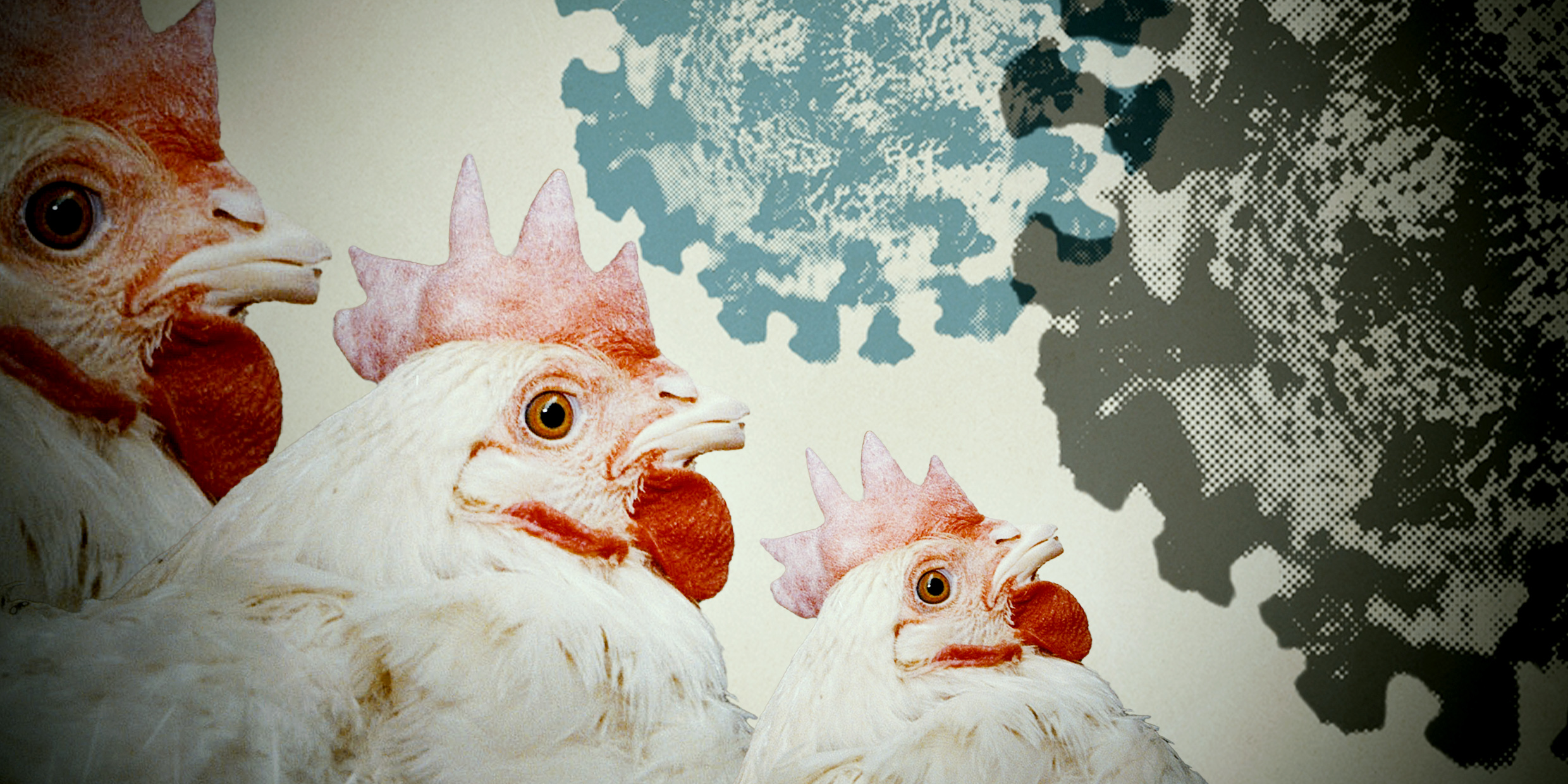The South African poultry sector suffered significant losses last year from the bird flu outbreak and while chicken and egg supplies seem to have stabilised, the novel H7N6 strain of Highly Pathogenic Avian Influenza (HPAI) is still lurking in some parts of the country.
SA’s poultry industry has warned of an imminent outbreak of bird flu, which it is powerless to prevent. The South African Poultry Association (Sapa) said such an outbreak would be “catastrophic” because a vaccination programme has yet to be introduced for the poultry sector.
There are several farms of concern in Gauteng, which bore the brunt of last year's outbreak. Some producers are refusing to cull their chickens because they have applied for exemptions from the Department of Agriculture, Land Reform and Rural Development (DALRRD) and are awaiting an outcome.
Dr Alan Kalake, the director of veterinary transversal services in Gauteng, told a panel discussion on lessons learned from South Africa’s deadliest avian flu outbreak that “some elements” of the poultry industry were uncooperative with the state in taking measures to stamp out the virus.
As a result, there are currently 20 open outbreaks in Gauteng. Ten of those producers have applied for exemptions from the prescribed, regulated measures for avian influenza, while the other 10 have already culled and are in the process of cleaning and disinfecting. A month after the destruction and cleaning process, DALRRD can declare the end of an outbreak on a property.
Dr Ziyanda Majokweni-Qwalela, from DALRRD, said H7N6 was not as virulent as previous strains, nor did it spread as quickly as the H5 and H6 strains. It caused about two-thirds fewer deaths, which is why farmers were requesting exemptions.
Wider spread
The virus’ slow spread and virulence contributed to the slower reaction to the outbreak and the wider geographic spread. Gauteng’s chief state veterinarian, Dr Adri Grobler, said this resulted in slower diagnostics and a wider spread as feed trucks and people helped spread the disease to more properties. “That’s something else that might have contributed to the magnitude of this outbreak.”
Izaak Breitenbach, the general manager of the broiler organisation of the South African Poultry Association (Sapa) said broiler producers lost about 1.5 million birds in the country’s first bird flu outbreak in 2017. The outbreak in 2021 cost them 3.5 million birds but last year’s “disastrous” outbreak — in which there were two strains of HPAI — cost them 9.5 million birds.
Breitenbach, who has just returned from an International Poultry Council meeting, said vaccines had been widely tested in Europe. In France, vaccines had worked “really well” to protect 21 million ducks.
Here, farmers are not compensated for culling, but they can apply for “consideration” for government relief, Kalake said, although none have been successful. “There’s no money.”
No vaccines have been registered yet for use against the H7N6 virus. DALRRD said that was due to “outstanding requirements for safety and/or efficacy, and/or quality”.
These outstanding requirements have been communicated to the vaccine companies that applied for registration, the department said, adding that “the matter is in their hands now to address these issues”.
“Poor quality, efficacy and safety of vaccines impact on animal welfare, the avian influenza status of the national flock, and trade in poultry and poultry products,” the department said.
One of the applicants is set to submit outstanding data on Friday, which will be evaluated before the final registration is granted. If it is satisfied that the applicant has addressed all the issues, the department said it was hopeful that the final registration would be granted “soon”.
Not only were producers forced to cull about 9.5 million birds last year, but SA’s poultry industry had to import more than 100 million fertilised eggs, which the Association of Meat Importers and Exporters claimed cost three times more than locally grown day-old chicks.
Last year’s outbreak has affected the viability of poultry farms across the country and raised concerns about food security, biosecurity and animal welfare.
Sapa said that with no compensation mechanism in place for culled birds, producers were shouldering a heavy burden of financial losses, including the costs associated with cleaning infected premises and restocking farms.
“The toll has been particularly harsh on smaller producers, with many forced out of business, and larger companies reporting record financial losses.”
It said the current regulations posed significant issues, with stringent biosecurity standards and monitoring protocols hindering widespread vaccination efforts.
“Despite the industry’s willingness to comply, no company has yet met the rigorous requirements for vaccination, underscoring the urgency for practical solutions.” DM





